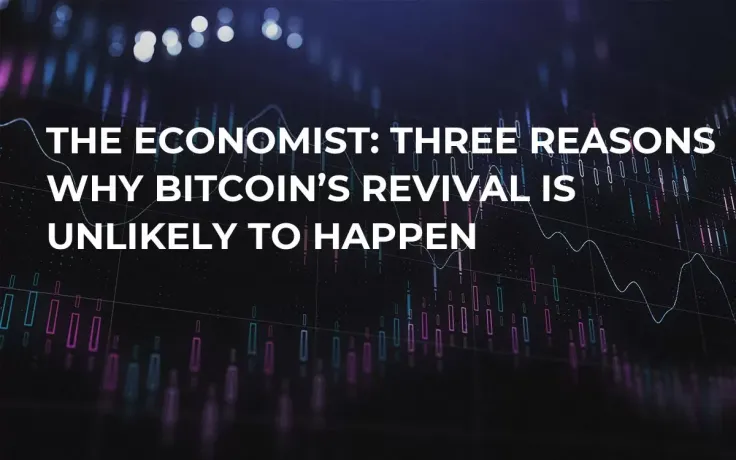
The Economist, one of the leading financial newspapers in the world, has recently published a new op-ed article that crypto bulls won’t like. It states that Bitcoin is unlikely to make a grand comeback after its steep fall in 2018.
card
Not another dot-com bubble
At the beginning of the article, they bring us back to Bitcoin’s golden times when CBOE launched Bitcoin futures nearly at the peak of the bull market. Bitcoin hit its current ATM of nearly $20,000 and Ripple’s XRP appeared among the best-performing coins of 2017 with a mammoth 36,000 percent price increase in 2017.
However, the bubble eventually popped. CBOE delisted their Bitcoin futures contracts and Bitmain, the mining juggernaut that was once valued at $12 bln, shelved its IPO plans (but not for good). While Bitcoin enthusiasts like to compare it to the dot-com craze in the late 90s that still paved the way to the biggest companies in the world, it might not be the case for crypto.
The three reasons why
The article goes on explaining that there are three major problems that will prevent Bitcoin from testing another ATH: lack of adoption, scalability, and rampant frauds.
Bitcoin, despite celebrating its 10-year anniversary, remains a niche payment option. Only $2.4 bln of Bitcoin's total trading volume in 2018 was attributed to merchant-service providers. On top of that, crypto firm Bitwise Asset Management recently estimated that 95 percent of Bitcoin’s trading volume is a hoax.
The second problem is related to scalability – Bitcoin is constantly bashed for the relatively slow transactions that prevent it from reaching mainstream adoption. In all fairness, it is worth mentioning that Bitcoin still greatly outperforms the mainstream remittance services in the scalability department.
Lastly, omnipresent scams are still plaguing this industry. The QuadrigaCX disaster is the latest proof that crypto exchanges cannot be trusted.


 Caroline Amosun
Caroline Amosun Tomiwabold Olajide
Tomiwabold Olajide Denys Serhiichuk
Denys Serhiichuk